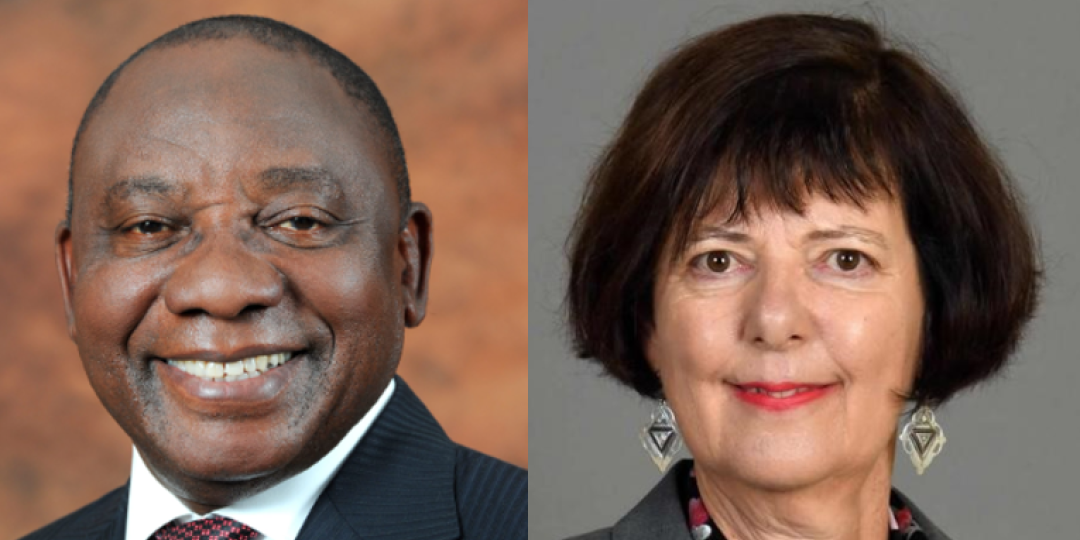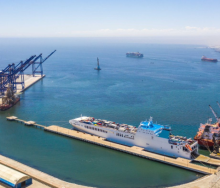South Africa’s president and transport minister have come out in support of the freight and trade industry as challenges continue to beset importers and exporters, holding back much-needed economic growth and its potential for job creation.
Delivering a keynote speech at the opening of a Climate Resilience Symposium in Pretoria on July 15, President Cyril Ramaphosa said the closure of the Port of Cape Town because of extreme weather experienced in the Western Cape over the last few days, highlighted the impact of storms on the country.
Speaking at a time when the country’s second-biggest container port is busy with its fruit export season, he said: “Having perishables from the agricultural sector at the port or in transit for an extended period of time results in losses for exporters.
“This in turn impacts on the agricultural sector in our country,” currently South Africa’s most successful economic sector.
“Given its importance for our economy, there is a direct knock-on effect,” said Ramaphosa.
At more or less the same time that Ramaphosa was lamenting the ferocity of incessant rain, strong wind and severe flooding in the Cape Metropole, Boland and Overberg, transport minister Barbara Creecy was delivering her department’s budget speech to Parliament.
Focusing more on self-created impediments following years of poor administration, she reiterated the requirement of having an efficient and functioning transport sector that moves people and goods safely, speedily and affordably across the country as a successful cointributor for the economy.
Creecy said: “In recent times there has been a disconnect between this vision and the realities of our transport system and our national Transport Department.
“Our sector is not operating as either an effective economic facilitator or as a much-needed social service.”
Creecy said that the National Household Travel Survey of 2020 “found that declining availability of rail services and damage to infrastructure means many households rely on alternative and more expensive methods of transport”.
The disruption of the Covid-19 pandemic added to the crisis experienced in the country’s logistical competency, as it resulted in a freight system “characterised by long delays in the movement of key bulk minerals, containers and vehicles.
“Dysfunctional port terminals resulted in long waiting times for ships wishing to berth, as well as congestion at strategic border crossings and key national highway corridors.
“Our freight rail system was characterised by maintenance backlogs, cable theft, and skills shortages.
“Our road systems deteriorated throughout the country and many provinces failed to execute maintenance and new build programmes, resulting in unspent funds being returned to National Treasury,” she said.
Creecy said she will undertake to stabilise South Africa’s transport system and make the
Transport Department “fit to fulfill its policy-making and regulator role”.
Though she added that it needs to be taken into consideration that, “against the background of multiple challenges in the freight logistics system and the ports and rail network, bold and decisive action was taken to address the problem and prevent further damage to the economy.
“Government in collaboration with business and unions formed the National Logistics Crisis Committee (NLCC) as a coordinated integrated response to meet the scale of the crisis.
“The NLCC has three distinct objectives: improving operational performance of industry supply chains including freight rail and ports; implementing reforms to modernise the freight transport system for efficiency and competitiveness, and necessary regulatory change or exemptions to enable efficient procurement and adequate funding for network maintenance.”
Work started by her predecessor, Sindisiwe Chikunga, to implement the Freight Logistics Roadmap, a product of the NLCC, is ongoing, Creecy said.













